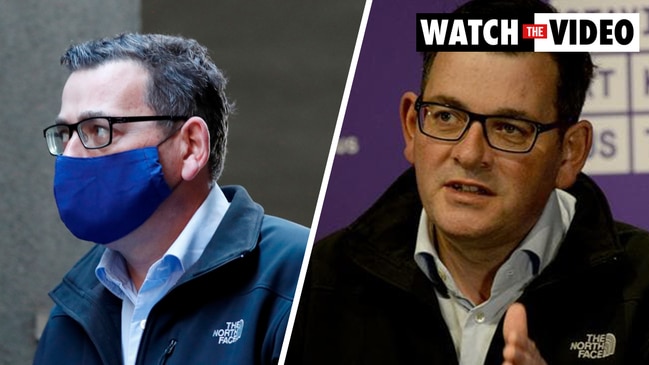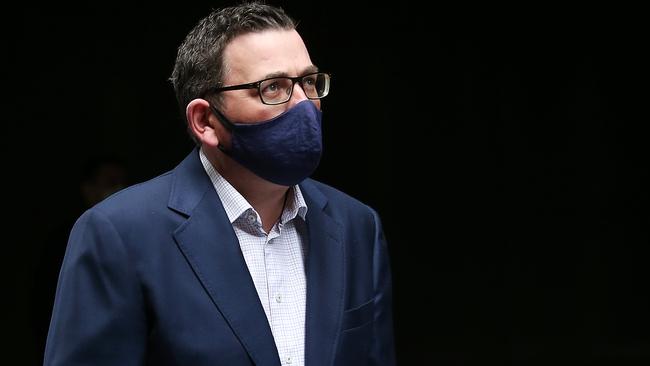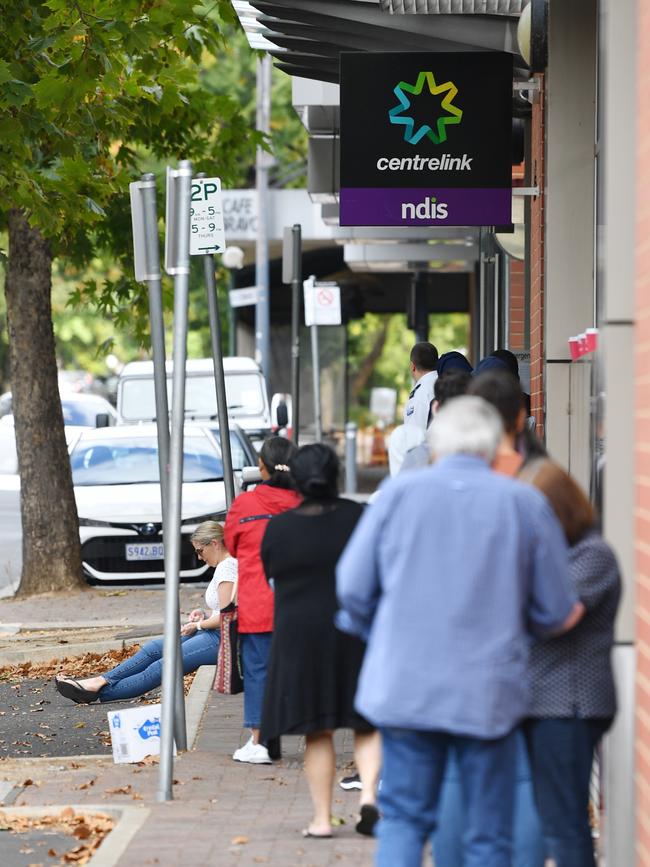Terry McCrann: Victoria’s disaster could become a national one
Victoria’s handling of the coronavirus pandemic is bordering on criminally negligent and the economic impact has started flowing across the border into the other states, writes Terry McCrann.

Terry McCrann
Don't miss out on the headlines from Terry McCrann. Followed categories will be added to My News.
Victoria has mostly shot itself in the foot over the disastrous quarantine bungle and the even more disastrous flow-on into aged care – both exercises in criminal negligence.
But the economic impact has started flowing across the border into the other states.
If the Victoria Lockdown 2.0 goes beyond six weeks as now seems somewhere between likely and certain it could drag the entire national economy back into recession.
If the virus itself erupts in other states – and especially in NSW – the consequences would be devastating on both the health and economic, and indeed the fiscal, fronts.
It would mean all the pain of the last four months would have been utterly wasted; but we would still be left with the trillion dollar debt bill – that’s, federally, and there’s also the hundreds of billions at the state level.

Both of these – the impact of Lockdown 2.0 on the Victorian state economy, which is one-quarter of the national economy, and the way that feeds across state borders – were shown in the payroll jobs data from the Australian Bureau of Statistics.
The total number of jobs fell by 1.1 per cent across Australia from mid-June to mid-July, but the drop in Victoria was double the national figure at 2.2 per cent.
Those numbers mightn’t sound too bad, but they were building on the earlier job losses triggered by the national Lockdown 1.0.
It took the loss of payroll jobs nationally to 5.6 per cent since mid-March. But the drop in Victoria over that period was a thumping 7.3 per cent, with only Tasmania, down 6.8 per cent, close.

And note the date: it was jobs lost through ‘mid-July’. Victoria’s Lockdown 2.0 was really only getting started and its flow-on impact to the rest of Australia at that stage would have been minimal.
Note also that these numbers cover workers on payrolls, so they ignore the 3.5 million on JobKeeper and so still officially on payrolls.
Take them out and the loss of jobs in the four months through mid-July would have been in double digits in every state and territory – except perhaps just WA and the NT – and also nationally.
The official payroll numbers tell us that Australia was still in recession – albeit, arguably mild in WA and the NT – through mid-July; but taking account of JobKeeper, we were still in deep recession.
This is where the disastrous situation in Victoria is so critical: on both the state and national economic fronts, there’s now a race between Victoria (and of course, everyone else) limiting future lockdowns and JobKeeper starting to unwind from the end of September.
In simple terms, that’s going to increasingly mean a combination of two things: people moving out from the hidden jobless of JobKeeper into the official jobless numbers; and falls in JobKeeper spending into the broader economy which has been so important in limiting the downturn.
At its extreme if all 3.5 million on JobKeeper moved to JobSeeker (the dole), the official jobless numbers would rocket into double digits and consumer spending would crater.
That in turn would create further job losses.
That is why I have been stressing that Victoria is now the pivot of everything.
It’s not a pivot that fills you with any confidence.
WE FINALLY LOCK IN LOW RATES
At last the federal government is doing something about locking-in these all-time low interest rates at which it can borrow money to fund our record budget deficits.
But it is far too little, too late.
As I argued over a year ago, the government should have set about aggressively borrowing money – and borrowing it ultra-long term – before we got the deficits; back when Treasurer Josh Frydenberg was still dreaming of, about-to-arrive, never-ending surpluses.
I generously and entirely gratuitously advised Josh to go out and ‘borrow a trillion’.
Back then, the $15 billion that the government has now borrowed for 30 years with an interest yield of just 1.94 per cent would have been an impressive start.
Now, it’s frankly pathetic. It’s barely 5 per cent of the $270 billion the deficit is ‘estimated’ (cue laughter) at for the two years 2019-20 and 2020-21.

It is an even more pathetic sub-2 per cent of the $850 billion of the (again, ‘estimated’) gross debt by July next year; and which is headed for $1 trillion and points north anyway.
After the issue we have $670 billion of bonds on issue; just $35 billion of which are for 20 years and longer (of which nearly half is this belated issue) and so locking in those low interest rates for the long-term.
The AOFM, which does the borrowing, is also locked-in – that’s, locked-in to a 20th century way of thinking. Back then you just didn’t borrow money for such a long time. Cue carrier pigeon to those ivory towers in Canberra; we are no longer living in the 20th century.
Right now we have an extraordinary opportunity to borrow a lot and I mean a lot of money at very low interest rates for periods we could have only dreamt of back then (thanks to the combination of Jerome Powell, China, the virus and tech).
It is an opportunity which is leveraged by our Triple-A credit rating; and which might well evaporate if we lose that Triple-A.
As Clint Eastwood memorably said: “You’ve got to ask yourself one question. Do I feel lucky?”
Do you want to bet the Triple-A and low rates will still be around in a year or two?
.
Originally published as Terry McCrann: Victoria’s disaster could become a national one
